Related Research Articles
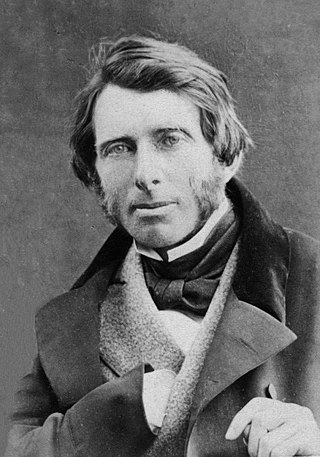
John Ruskin was an English writer, philosopher, art critic and polymath of the Victorian era. He wrote on subjects as varied as geology, architecture, myth, ornithology, literature, education, botany and political economy.
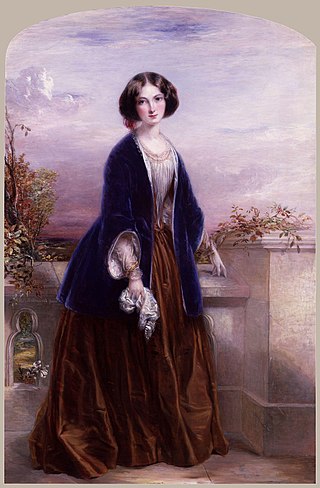
Euphemia Chalmers Millais, Lady Millais was a Scottish artists' model and the wife of Pre-Raphaelite painter John Everett Millais. She had previously been married to the art critic John Ruskin, but she left him with the marriage never having been consummated; it was subsequently annulled. This famous Victorian "love triangle" has been dramatised in plays, films, and an opera.

Sir John Everett Millais, 1st Baronet, was an English painter and illustrator who was one of the founders of the Pre-Raphaelite Brotherhood. He was a child prodigy who, aged eleven, became the youngest student to enter the Royal Academy Schools. The Pre-Raphaelite Brotherhood was founded at his family home in London, at 83 Gower Street. Millais became the most famous exponent of the style, his painting Christ in the House of His Parents (1849–50) generating considerable controversy, and he produced a picture that could serve as the embodiment of the historical and naturalist focus of the group, Ophelia, in 1851–52.
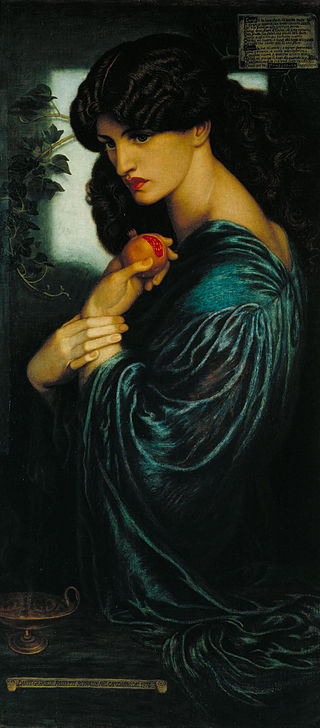
The Pre-Raphaelite Brotherhood was a group of English painters, poets, and art critics, founded in 1848 by William Holman Hunt, John Everett Millais, Dante Gabriel Rossetti, William Michael Rossetti, James Collinson, Frederic George Stephens and Thomas Woolner who formed a seven-member "Brotherhood" modelled in part on the Nazarene movement. The Brotherhood was only ever a loose association and their principles were shared by other artists of the time, including Ford Madox Brown, Arthur Hughes and Marie Spartali Stillman. Later followers of the principles of the Brotherhood included Edward Burne-Jones, William Morris and John William Waterhouse.
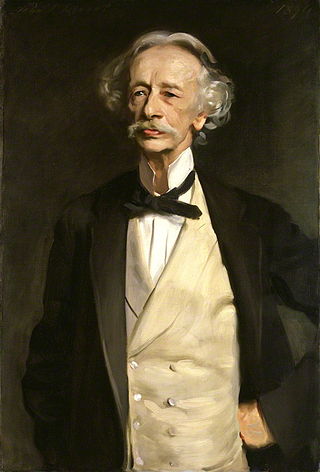
Coventry Kersey Dighton Patmore was an English poet and literary critic. He is best known for his book of poetry The Angel in the House, a narrative poem about the Victorian ideal of a happy marriage.
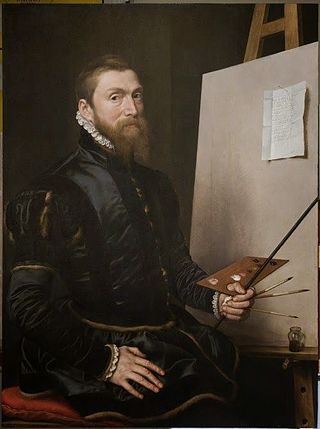
Anthonis Mor, also known as Anthonis Mor van Dashorst and Antonio Moro, was a Netherlandish portrait painter, much in demand by the courts of Europe. He has also been referred to as Antoon, Anthonius, Anthonis or Mor van Dashorst, and as Antonio Moro, António Mouro, Anthony More, etc., but signed most of his portraits as Anthonis Mor.
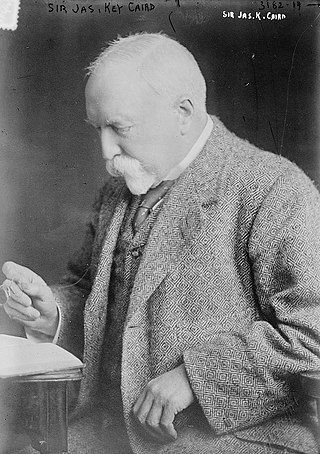
Sir James Key Caird, 1st Baronet was a Scottish jute baron and mathematician. He was one of Dundee's most successful entrepreneurs, who used the latest technology in his Ashton and Craigie Mills.
Events from the year 1855 in art.
Events from the year 1848 in art.
Events from the year 1849 in art.
Edith Penelope Mary Lutyens was a British author who is principally known for her biographical works on the philosopher Jiddu Krishnamurti.

Mariana is an 1851 oil-on-panel painting by John Everett Millais. The image depicts the solitary Mariana from William Shakespeare's Measure for Measure, as retold in Tennyson's 1830 poem "Mariana". The painting is regarded as an example of Millais's "precision, attention to detail, and stellar ability as a colorist". It has been held by Tate Britain since 1999.
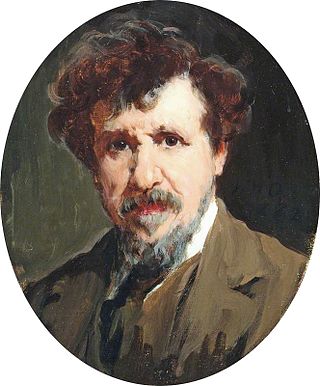
Thomas Oldham Barlow was an English mezzotint engraver. His prints helped to popularise the works of painters like John Phillip and Sir John Everett Millais.
Henry Raeburn Dobson was a Scottish portrait and landscape painter from Edinburgh. He was active in Edinburgh and Brussels from 1918 until 1980. His father, Henry John Dobson (1858–1928), and his brother, Cowan Dobson (1894–1980), were genre and portrait painters. Paintings of his are mainly painted in oil, whereas those of his landscapes are mainly painted in watercolours.

John Ruskin is a portrait of the leading Victorian art critic John Ruskin (1819–1900). It was painted by the Pre-Raphaelite artist John Everett Millais (1829–1896) during 1853–54. John Ruskin was an early advocate of the Pre-Raphaelite group of artists and part of their success was due to his efforts.
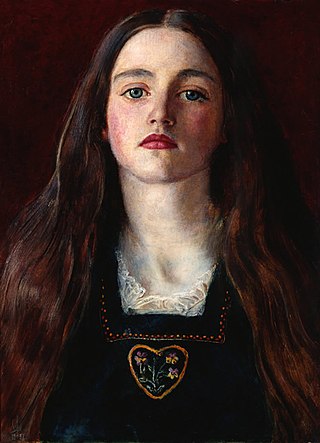
Sophia Margaret "Sophie" Gray, later Sophia Margaret Caird, was a Scottish model for her brother-in-law, the Pre-Raphaelite painter John Everett Millais. She was a younger sister of Euphemia "Effie" Gray, who married Millais in 1855 after the annulment of her marriage to John Ruskin. The spelling of her name was, after around 1861, sometimes "Sophy," but only within the family. In public she was known as Sophie and later in life, after her marriage, as Sophia.
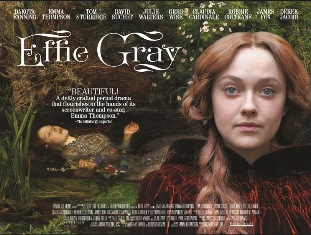
Effie Gray is a 2014 British biographical film written by Emma Thompson and directed by Richard Laxton, starring Dakota Fanning, Emma Thompson, Julie Walters, David Suchet, Derek Jacobi, James Fox, Robbie Coltrane, Claudia Cardinale, Greg Wise, and Tom Sturridge. It is based on the true story of John Ruskin's marriage to Euphemia Gray and the subsequent annulment of their marriage.

Emily Augusta Patmore was a British author, Pre-Raphaelite muse and the inspiration for the 1854-1862 poem The Angel in the House.